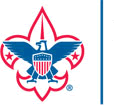The Nature of the Questions
During a Board of Review many questions are asked of the Scout, and for each rank these questions are designed to gain an insight into how the Scout is doing within the troop. The questions for the lower ranks are simpler and generally deal with factual information about the Scout’s participation in his unit, and his approach to applying the skills he has learned toward earning the next rank. The questions for the higher ranks are less factual, and generally seek to aid understanding of how Scouting is becoming an integral part of the Scout’s life. Remember: it is not the point of a Board of Review to retest the Scout. However, questions like, “Where did you learn about…” or “Why do you think it is important for a [rank] Scout to have this skill?” are valid.
If a Scout appears nervous or anxious about the Board of Review, it might be appropriate to ask one or two questions from the list for a lower rank, to help “break the ice” and establish some rapport. In general, within a rank, the questions are arranged from “easiest” to “most difficult”.
For each rank, there is a question about advancing to the next rank. The purpose of this question is to encourage advancement, but it should not be asked in a way that pressures the Scout. [Note: If the Board of Review is for the Life rank, and the Scout is at or near his 17th birthday, some pressure towards Eagle may be in order. At the very least, be certain that the Scout realizes that his time is running out.]
For higher ranks, there is a question from The Boy Scout Handbook about basic Scouting history. For Order of the Arrow members, there are questions about the role of OA within Scouting. More questions are provided than can typically be accommodated in the time suggested. The Board of Review will need to select the questions, which are appropriate for the particular Scout and his experiences.
Below you will find links to typical Board of Review questions for each rank, and are intended to only serve as a guide. Board of Review members should freely add to, or remove from, these lists, as they feel appropriate. Again, not knowing an answer does not disqualify a Scout from passing; he should be given the answer, however, along with a brief discussion by the questioner of why it was asked and why it is important.
In the end, however, the board of review is not about the questions. It’s about the Scout and his growth through Scouting’s advancement program


